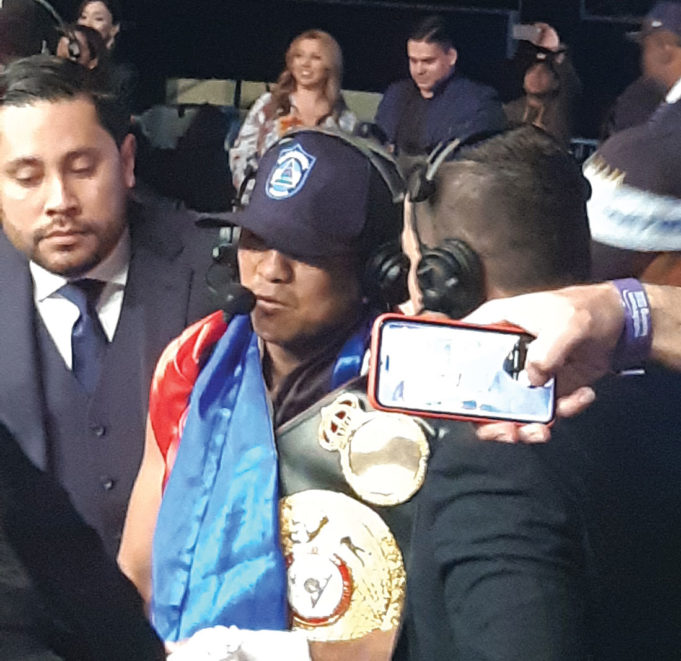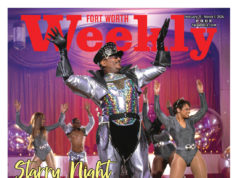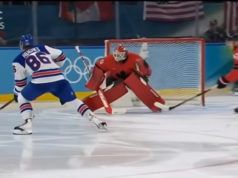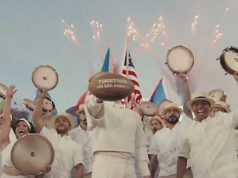I have always loved boxing. At least I have loved boxing for as long as I can remember loving anything, sport or otherwise. It was Christmas 1979, and I was a little kid. I had received a pair of boxing gloves, an Ali-style robe, and a punch ball. The ball was on a bendy pole atop a piece of painted wood, upon which the would-be boxer had to place one foot to stop the contraption from hurtling across the room. I punched with vigor and frowned only lightly each time the ball rebounded and smacked me in the face. I took this as a good way to practice being hit, though, being a working-class kid in the 1970s, there was no shortage of real fights for me.
My introduction to watching boxing was a sure-fire, in-at-the-deep-end moment. Having dipped my toes in boxing waters, I was picked up nine months later and hurled into the depths. I watched the world title fight on TV that would become infamous — London’s Alan Minter defending his middleweight title (fighting at 160 pounds) against hitherto little-known American brawler Marvin Hagler, who would later add the middle name “Marvelous” to his legal name. Hagler brutalized Minter from the off, shocking both seasoned viewers and boxing newbs like me. Worse was to come at the end of the fight, as Hagler was assaulted with numerous glass bottles lobbed from the crowd. I was hooked by the controlled violence in the ring and confused by the rage without. I have watched every boxing match of any import or significance for the 40 years since.
Imagine this reporter’s glee at receiving media accreditation for the huge boxing event at Frisco’s Ford Center, part of the new world headquarters of the Dallas Cowboys. Accreditation gave me access to press conferences; one-to-one interviews with fighters, managers, and promoters; and, most crucially, ringside access on fight night. On arrival at the secret media entrance at around 6 p.m. Saturday, I was scanned for metal objects, had my name checked off a list, and was given the exclusive dark green wristband. I was then escorted — ooh! get me — through the 12,000-seat venue and inside the media cordon and shown my seat on Row 1, right behind the TV commentary teams. Our long table was effectively split into pairs of reporters who shared a TV, despite being no more than 20 feet from the ring. There was space for a laptop and convenient charging points. I had also been given a coupon for free food. I was feeling pretty good about life at this point.
I reached my seat just as South Central L.A.’s Diego Pacheco was touching ’em up at the start of his fight. The stadium was perhaps 20-percent full, and most of the early arrivers were clearly big fans of the lanky Mexican-American. Pacheco’s six-round fight was predictably one-sided. He is early in his career, only 18 years old, and is being matched lightly at this point. He won all rounds on all three judges’ scorecards. Having seemed to run out of fresh ways to beat up his opponent, Oscar Riojas, in Round 5, Pacheco let it all hang out in Round 6, leaving his opponent battered but with his pride intact at having gone the distance. What was noteworthy sitting so close to the action were the sights and sounds of boxing that do not fully come across on TV. Leather on muscle, the shifting of well-rehearsed footwork across canvas, the lumpen thud of hammer on metal at the 10-second warning, effort exhaled, corners’ instructions garbled or poured with aplomb, the encouragement of fans who seem to know the boxers personally, the experts in the crowd –– Vamos! Lo cuerpo! Arriba! Finish him! –– music blaring jarringly in between rounds, piercing the concentration in the ring and the anticipation and anxiety in the audience, stoic camera operators perched unflinchingly on the ring apron.
Israil Madrimov wanted to take a world title fight as soon as he turned pro. This was not hubris. As a decorated amateur, “The Dream” entered the pro game with everyone’s hopes high. In his fifth professional fight, the guy looked even better live than on TV. His feints and footwork keep the opponent off balance and guessing the whole time. Scheduled for 10 rounds, this fight would take the winner to the doorstep of a world title fight. Across the ring, Charlie Navarro did his best as a successful pro of long standing, but he had no answers to the Uzbek’s superior skill set.
As the crowd started to fill in slowly, discernible by the reduced echo of the supporting shouts from the audience, Madrimov closed the distance in the seventh, working the body and head with vicious short hooks. Navarro’s nightmare ended as the left hand almost pierced his body, sending a tough guy to his knees. Referee Rafael Ramos showed his experience by immediately calling off the fight-cum-master class.
The main televised card began around 7 p.m. with two big guys squaring off. Two-hundred-and-forty-five pounds of Maori in the shape of New Zealander Joseph Parker went back to business against Shawndell Winters, who is considered a small heavyweight at a mere 209 pounds. The fight was competitive and entertaining for the growing crowd, most of whom had no dog in this fight. Parker ended the hopes of the extremely game Winters in Round 5 with a pinpoint combo. Parker ended the night with a cut on his right eye just to prove that he’d earned his paycheck.
The first world title fight of the night was up next with Julio Cesar Martinez, Mexico City’s WBC flyweight world champion, facing Wales’ Jay Harris. Martinez’ fans lifted the roof off the arena as the pocket dynamo entered the ring — all 5’3” of him. The fever pitch rarely subsided in and out of the ropes for the entire 12 rounds of an absorbing fight. After an initial period in which Harris looked likely to be overwhelmed, he rallied remarkably well to make each round competitive. Martinez scored a knockdown in Round 10 off an air-sapping body blow. Harris rose and survived, coming out in search of the win in Rounds 11 and 12. It was Martinez who got the nod on all three scorecards to retain his title.
Román “Chocolatito” González is a still-fighting legend of boxing. The Nicaraguan is a god in his home country. Both of these facts were fully evidenced by the reception he received upon entering the arena and then the ring Saturday. In the rare position of a challenger, Choco was looking to wrest the title from England’s Kal Yafai, in his sixth defense. The crowd surged and swelled in sound and motion as the fight got underway. It was evident early that the Managua man was far from a spent force in the 51st fight of his career. After three rounds, the little guy was walking through the visibly larger champion, unloading to the body and head, little caring what Yafai fired back with. A late-round barrage in the eighth had Yafai down for the first time in his career. The ninth started where the previous round left off, and it was all over after 28 seconds, as Gonzalez landed a picture-perfect one-two — left jab, right hand to the jaw — that rendered Yafai unconscious, stiff-legged, and sprawled on the canvas. There was absolute pandemonium through the entire building, awe among the media, and reverence a few minutes later, when the new world champion joined the Hispanic commentary trio right in front of me to give a live interview. What a man.
The main event was on as soon as the in-ring mariachi ended. Mikey Garcia is much loved by all boxing fans and something of an idol for many Mexican-Americans. He was looking to bounce back after moving up two weight classes and losing for the first time in 40 fights. This fight promised to be all action all the way. With the crowd chanting ”México! México!” throughout and canciones de amor played between rounds, there was a real fiesta-like atmosphere. Mikey met the moment. After a competitive first half of this non-title 12-rounder, Garcia’s superior footwork and judgment of distance made the last six rounds as comfortable as possible, given that Jessie Vargas is a skilled and determined professional pugilist trying to burst Mikey’s bubble. Garcia put some flair on the win by dropping Vargas in Round 4 on the end of a looping right hand. The crowd went home content at having seen their man get the W. It was gratifying to see so many couples, families, and mixed friend groups file out of the arena, chattering excitedly as they went.













A very fitting and well written article which almost made you feel that you were in the arena itself! Also, I hope Frisco and the DFW metroplex get to witness many more world title fights in the near and distant future! Here in DFW we love our sports much more than your average metroplex and Saturday night was no exception!